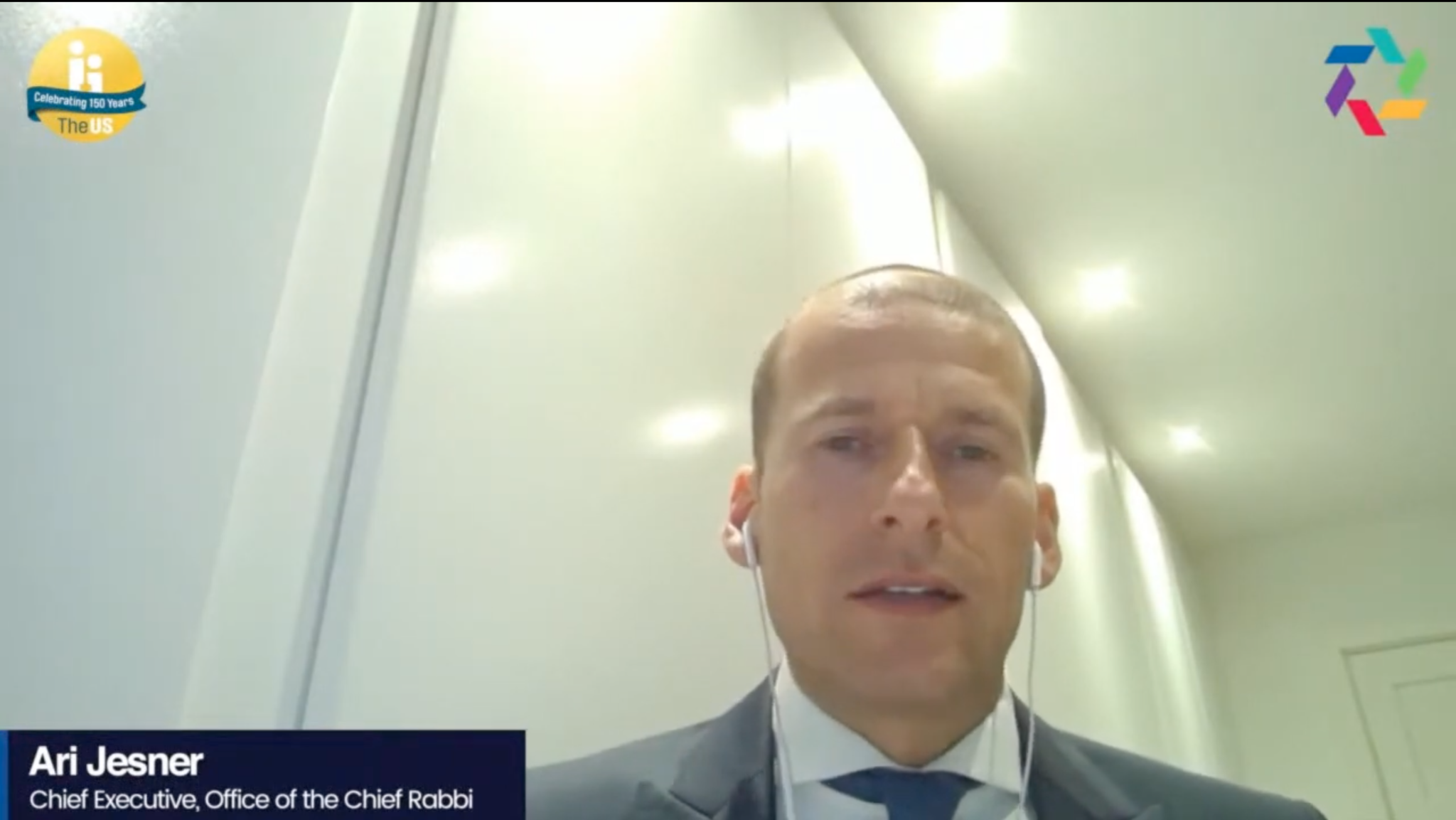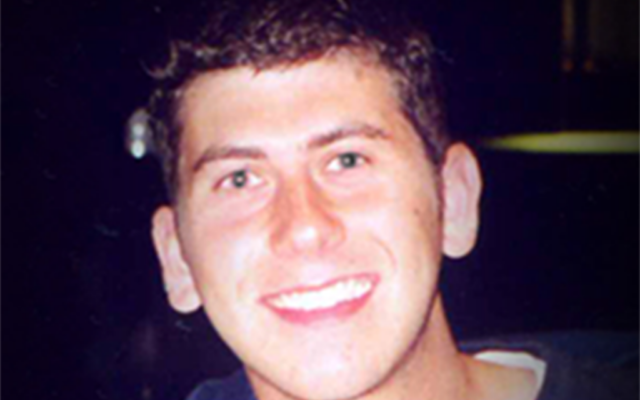Yoni Jesner’s brother backs new NHS organ donation scheme
Ari Jesner, sibling of British teen killed in a suicide bombing in Israel in 2002 whose kidney saved a Palestinian girl’s life, calls it a 'tremendous opportunity'
The chief executive of the Office of the Chief Rabbi has urged members of the Jewish community to sign-up to the NHS’s new organ donation system, which could go live in as little as three weeks’ time.
Ari Jesner, whose brother Yoni was killed in a suicide bombing in Israel in 2002 and his kidney donated to a Palestinian girl, saving her life, issued the call to arms in a virtual symposium on Sunday, as senior rabbis and clinicians discussed changes to organ donation law in England and the implications of this on Jewish law.
In May, England adopted an opt-out system, meaning that anyone who is not in an excluded group and who has not confirmed that they want to be an organ donor will be considered to have agreed to donate their organs when they die.
Due to disruptions caused by the coronavirus pandemic, officials had assumed that implementation of the new opt-out system would be greatly delayed, perhaps until next year, but Jesner told the online gathering that it could be up and running in less than a month.
“We had been led to believe that this would be a number of months away, but it seems that the NHS has managed to perform yet another miracle, and this will be coming online sooner than we expected,” he said. “It seems this new deemed consent will be operating in practice possibly from the end of July.”
As the system is now technically operational, Jesner said “the recommendation to the community is to go online and sign-up with confidence” to the new organ donor register and complete the faith declaration. “It’s a tremendous opportunity.”
Referring to his brother Yoni, Ari said he knew all too well the importance of families discussing their preferences.
He said the Chief Rabbi’s Office and the Board of Deputies had worked hard with NHS Blood and Transplant (NHSBT) and the Human Tissue Authority to create a faith statement enabling Jews to record their decision based on Jewish law and ethical considerations.

This new Jewish faith statement, which can be viewed and signed by any Jewish organ donor, is now live on the NHSBT website, and states that if the donor’s family and rabbi are assured that organs or tissue can be donated “in a manner compliant with my Jewish faith” then donation can proceed.
The implications of the system change on Jewish law has drawn interest from across the UK Jewish community, and Sunday’s symposium, which featured halachic and medical experts, has already viewed thousands of times of social media channels.
The event was convened by Borehamwood and Elstree United Synagogue in conjunction with Bushey United Synagogue, the United Synagogue and the Jewish Organ Donor Association (JODA), and it was moderated by Rabbi Alex Chapper.
The panel addressed the challenges this law change presents to the Jewish community and the “new positive approach from Jewish institutions”.
Alongside Jesner was Dr Richard Schoub, a consultant in Intensive Care Medicine and anaesthesia at Barnet Hospital, Royal Free London, who spoke about the donation process, the definition of death and the sensitivity of the medical teams when discussing donations with families.
Also speaking was Dayan Gelley, Rosh Beth Din, who gave the halachic view on organ donation and spoke about the challenges that the change in the law poses, before presenting practical solutions that resolve these issues.

Chapper said the event “addressed an issue that is of real interest within our community” while JODA co-founder Dr Marc Wittenberg, a consultant anaesthetist, said the faith statement “means that Jews can sign up with confidence, knowing their wishes will be respected fully in line with their religious beliefs”.
Research has shown that “people can be reticent about having conversations about organ donation,” he added. “With the change in the law, now is the time to start talking with loved ones about this, knowing we have clear religious options in place.”

Thank you for helping to make Jewish News the leading source of news and opinion for the UK Jewish community. Today we're asking for your invaluable help to continue putting our community first in everything we do.
For as little as £5 a month you can help sustain the vital work we do in celebrating and standing up for Jewish life in Britain.
Jewish News holds our community together and keeps us connected. Like a synagogue, it’s where people turn to feel part of something bigger. It also proudly shows the rest of Britain the vibrancy and rich culture of modern Jewish life.
You can make a quick and easy one-off or monthly contribution of £5, £10, £20 or any other sum you’re comfortable with.
100% of your donation will help us continue celebrating our community, in all its dynamic diversity...
Engaging
Being a community platform means so much more than producing a newspaper and website. One of our proudest roles is media partnering with our invaluable charities to amplify the outstanding work they do to help us all.
Celebrating
There’s no shortage of oys in the world but Jewish News takes every opportunity to celebrate the joys too, through projects like Night of Heroes, 40 Under 40 and other compelling countdowns that make the community kvell with pride.
Pioneering
In the first collaboration between media outlets from different faiths, Jewish News worked with British Muslim TV and Church Times to produce a list of young activists leading the way on interfaith understanding.
Campaigning
Royal Mail issued a stamp honouring Holocaust hero Sir Nicholas Winton after a Jewish News campaign attracted more than 100,000 backers. Jewish Newsalso produces special editions of the paper highlighting pressing issues including mental health and Holocaust remembrance.
Easy access
In an age when news is readily accessible, Jewish News provides high-quality content free online and offline, removing any financial barriers to connecting people.
Voice of our community to wider society
The Jewish News team regularly appears on TV, radio and on the pages of the national press to comment on stories about the Jewish community. Easy access to the paper on the streets of London also means Jewish News provides an invaluable window into the community for the country at large.
We hope you agree all this is worth preserving.






















